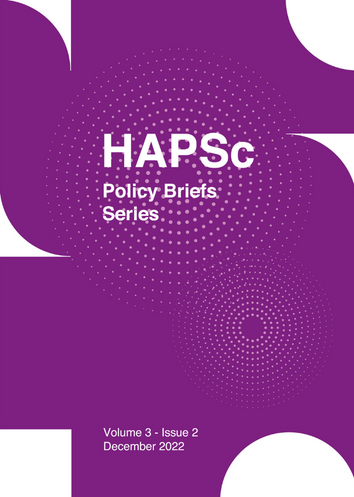Minilateralism for Multilateralism: What Role for the EU in the Instrumentalization of the Japan-Australia Strategic Partnership

Abstract
The era of “permacrisis” gives rise to minilateral arrangements increasingly at the expense of embedded multilateralism in regional governance. The area of the Indo-Pacific has become the bedrock of minilateral security cooperation. The 2022 Joint Declaration on Security Cooperation (JDSC) between Japan and Australia compliments the hub-and-spokes system and poses an opportunity for the European Union to advance its own strategic compass and address regional security and economic issues in transformative and dynamic ways. Minilateralism poses opportunities and challenges. The paper presents policy recommendations for the EU so as to instrumentalize the 2022 JDSC and concludes that despite the merits of informal and non-binding minilateral arrangements, minilateralism should be used to overcome the stalemates in multilateralism rather than replacing inclusive, legally binding, formal agreements that aim at an order-building architecture which advances the role of international institutions.
Article Details
- How to Cite
-
Charalampaki, E. (2022). Minilateralism for Multilateralism: What Role for the EU in the Instrumentalization of the Japan-Australia Strategic Partnership. HAPSc Policy Briefs Series, 3(2), 103–116. https://doi.org/10.12681/hapscpbs.33789
- Section
- Articles

This work is licensed under a Creative Commons Attribution 4.0 International License.
Authors retain copyright and grant the journal right of first publication with the work simultaneously licensed under a Creative Commons Attribution License that allows others to share the work with an acknowledgement of the work's authorship and initial publication in this journal.

